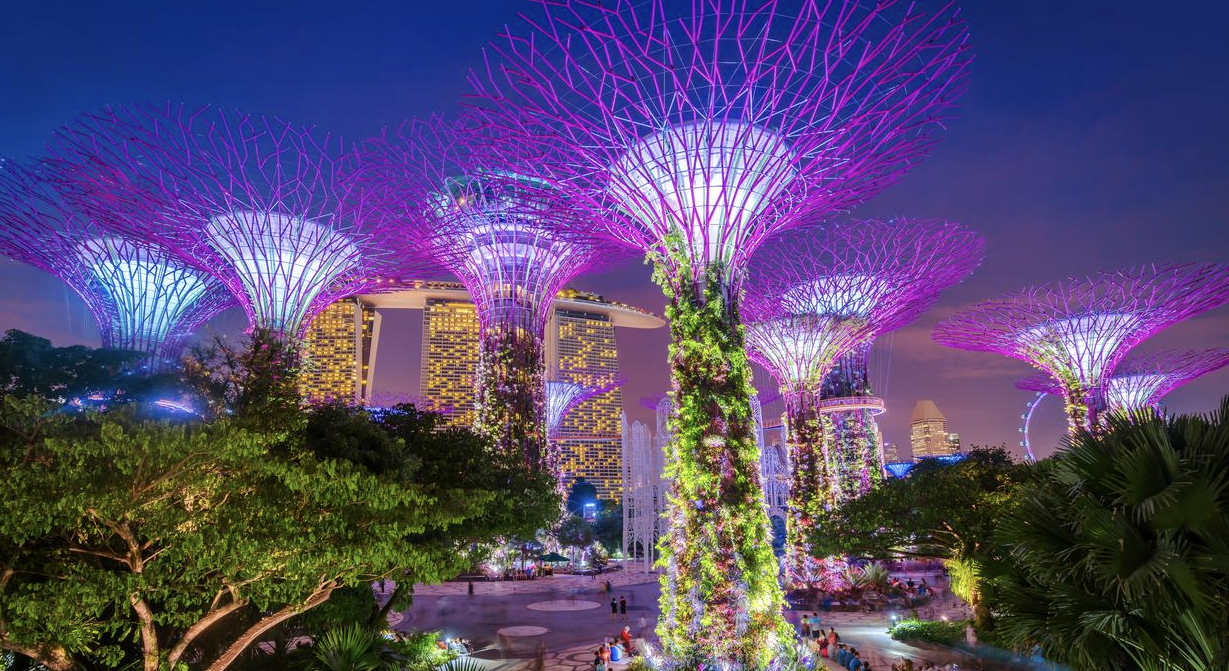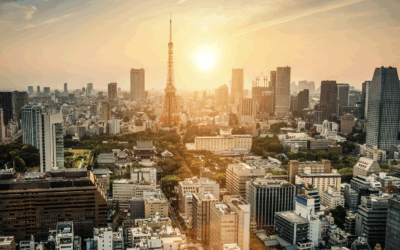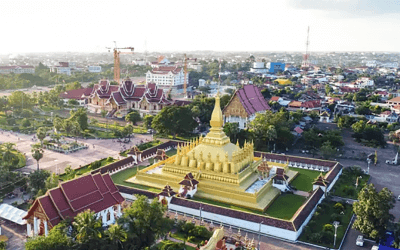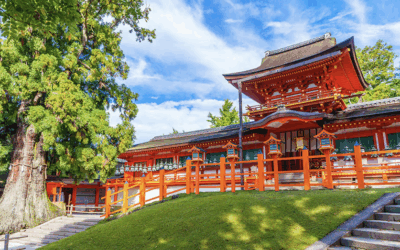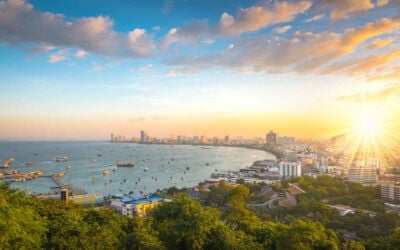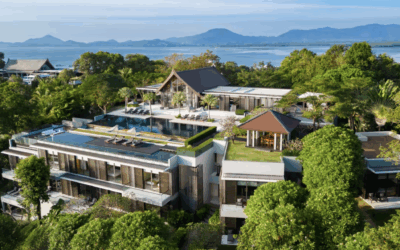Singapore is renowned as one of the world’s most dynamic financial hubs, attracting wealthy individuals from across the globe. Buying landed property as a foreigner isn’t easy here though.
Nonetheless, the city-state’s stable government and strategic location in the heart of Southeast Asia make it an appealing place to invest in real estate for certain types of UHNWIs.
If you’re already a citizen or permanent resident, Singapore offers a wide variety of private property options including Good Class Bungalows (GCBs), and landed houses.
Below we’ll explore the ins and outs of buying private property in Singapore whether as a foreign or local investor.
Types of Property in Singapore
Singapore’s private property market can be divided into two main categories: non-landed and landed properties.
Non-landed properties include condos and apartments, while landed properties refer to houses that come with land ownership, such as bungalows, semi-detached houses, and GCBs.
Foreigners are allowed to freely purchase non-landed private properties, such as condos and apartments, without the need for government approval. This makes buying a condo in Singapore a relatively straightforward process for foreign investors.
However, it’s important to note that executive condominiums (ECs) are only available for purchase by foreigners after a minimum occupation period, typically five years.
On the other hand, buying any type of land in Singapore as a foreigner – including GCBs and shophouses – is highly restrictive even for permanent residents.
Unless you’re an UHNWI, the only realistic way to ever buy landed property here is as a Singaporean citizen.
To purchase landed houses like bungalows or terrace houses, foreigners must obtain approval from the Singapore Land Authority (SLA). The only exception is Sentosa Cove, where foreigners can buy landed properties without the need for government approval.
Several nearby countries in Asia make it easier though. You may want to consider them if Singapore is too cost prohibitive.
Buying Land in Singapore as a Foreigner
To gain approval from the SLA for purchasing landed property, foreign buyers must meet several criteria.
First, they must have been a permanent resident of Singapore for at least five years. You simply can’t buy land in Singapore as a non-resident.
Secondly, they must demonstrate that their ownership of the property will significantly contribute to Singapore’s economy.
In practice, this economic contribution is often interpreted as a substantial investment, typically in the range of S$50 million or more.
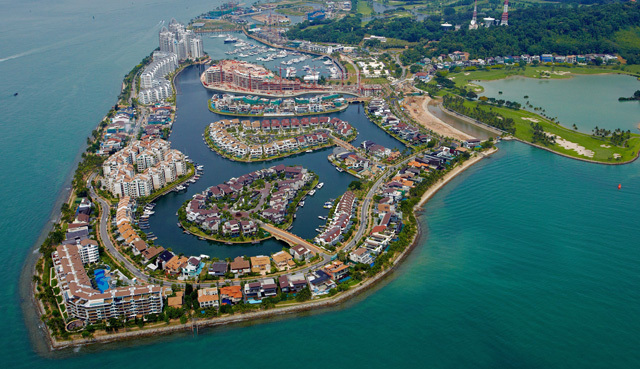
Sentosa Cove is the only area in Singapore where foreigners can buy landed property without the government’s specific approval.
It’s worth noting that even if a foreign buyer meets these requirements, the SLA may still deny their application to purchase landed property.
The decision is ultimately at the discretion of the government, which aims to ensure that foreign ownership of land benefits Singapore’s economy and society as a whole.
Buying Process for Singapore Private Property
For those interested in purchasing private non-landed property, such as a condo or apartment, the buying process is relatively straightforward. Here’s a step-by-step guide:
1. Engage a property agent or consultant to help navigate the Singapore real estate market and find suitable properties.
2. As a foreigner, you’ll need to pay the Additional Buyer’s Stamp Duty (ABSD), which is a tax levied on foreign property buyers. The ABSD rate for foreign buyers is 20% of the property price or market value, whichever is higher.
3. Engage a lawyer to handle the legal aspects of the transaction, such as conducting due diligence on the title and preparing the necessary documents.
4. Complete the sale by paying the remaining balance of the purchase price and taking possession of the property.
For foreign buyers seeking to purchase landed property, the process is similar but with the added step of obtaining SLA approval.
This involves submitting an application with detailed info about the buyer’s background, economic contributions to Singapore, and the specific property they want to purchase.
Financing and Tax on Property Buyers
Local buyers will find it relatively straightforward to get a mortgage as long as they have an appropriate level of income.
Getting a mortgage in Singapore as a foreigner is difficult, but possible. Real estate buyers can finance their purchase through a combination of cash and bank loans.
However, the maximum loan-to-value (LTV) ratio for foreigners is capped at 75% for the first housing loan and 45% for subsequent loans.
This means that foreign buyers must have a significant amount of cash on hand to cover the down payment and other upfront costs.
In addition to the ABSD, foreign property buyers in Singapore must also pay a substantial Buyer’s Stamp Duty (BSD), which is a tax on the home’s purchase price or market value.
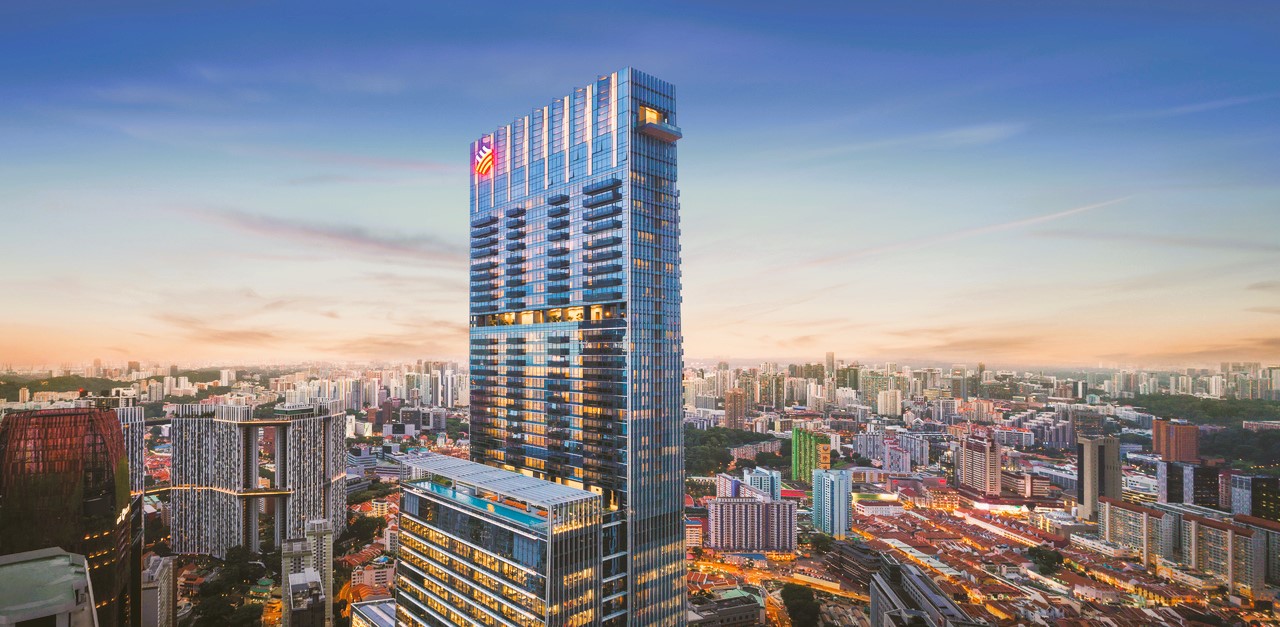
In Singapore, not all the condos are sold on a freehold basis. For example, all 181 units, including the “super penthouse” unit at the Wallich Residence are leasehold with a 99-year lease period.
It’s also important for foreign buyers to understand the annual property tax obligations that come with owning private property in Singapore.
The property tax rates for residential properties range from 0% to 16%, depending on the annual value of the property and whether it is owner-occupied or rented out.
Also, if you aren’t a long-term resident who is receiving income in Singapore, it’s highly unlikely that any bank will give you a mortgage in practice.
Risks for Foreign Buyers in Singapore
Private property in Singapore does involve some risks and considerations to keep in mind, especially as a foreign buyer.
First, you won’t be entering this market at all if you aren’t extremely wealthy. You’ll need to already be living in Singapore and investing an amount well into the eight-figure range in order to qualify.
Of course, Singapore is renowned as one of the world’s most expensive places to buy a home. Large estates in prime locations such as Orchard and Sentosa are easily worth tens of millions.
Second, the Singapore government has implemented various cooling measures over the years to regulate the property market and prevent excessive speculation.
These measures, such as the ABSD and LTV limits, impact affordability and profitability of property investments for foreign buyers in particular.
Singapore’s government has made all attempts to stop speculation by foreign investors. Quite frankly, you aren’t meant to make money off real estate here as a non-citizen.
Finally, foreign buyers should remain aware of the potential for currency fluctuation and how it can affect the value of their property investment.
The Singapore dollar is one of Asia’s most stable currencies, but still isn’t fully immune to global economic uncertainty.
In summary though, buying private property in Singapore can be an attractive option for UHNWI foreign investors who already have roots here.
FAQs: Private Property in Singapore
Can Foreigners Own Land in Singapore?
Yes, foreigners can legally own houses, bungalows, and other landed properties under six stories tall in Singapore. However, you'll need government approval first if you aren't a Singaporean citizen.
It's a highly bureaucratic process and you must prove that your land ownership will "benefit Singapore's economy" – perhaps an intentionally vague wording. Usually that's done by bringing a substantial sum of money into Singapore to buy land with.
Plan on spending in the SG$50,000,000 or greater range if you want to own any type of land in Singapore as a foreigner.
Where is the Most Expensive Property in Singapore?
You should expect to pay about US$20,000 per square meter for real estate in prime locations like Orchard or Marina Bay. These are some of the priciest areas in Singapore.
Property prices in Singapore are far higher than in most other places. In fact, Hong Kong is the only city in all of Asia that's more expensive than Singapore. The city-state's lack of space and strategic location as an unofficial financial center of Southeast Asia contribute to its sky-high real estate costs.
Can Foreigners Get a Mortgage in Singapore?
Permanent residents and citizens with enough income are able to get loans. Otherwise, it's almost impossible to get a mortgage if you're a foreign non-resident without any existing ties to Singapore.
How Much Does a House in Singapore Cost?
Singapore has one of the most expensive housing markets in the world. The vast majority of foreigners looking to buy property in Singapore purchase non-landed condos to avoid the hassle and high costs of acquiring landed properties.
While the average condo price is just under S$1 million, if you wish to buy a bigger unit or one in a prime location, expect to pay closer to S$2 million. Houses and landed properties favored by ultra-high-net-worth individuals can cost in the tens of millions of dollars.

